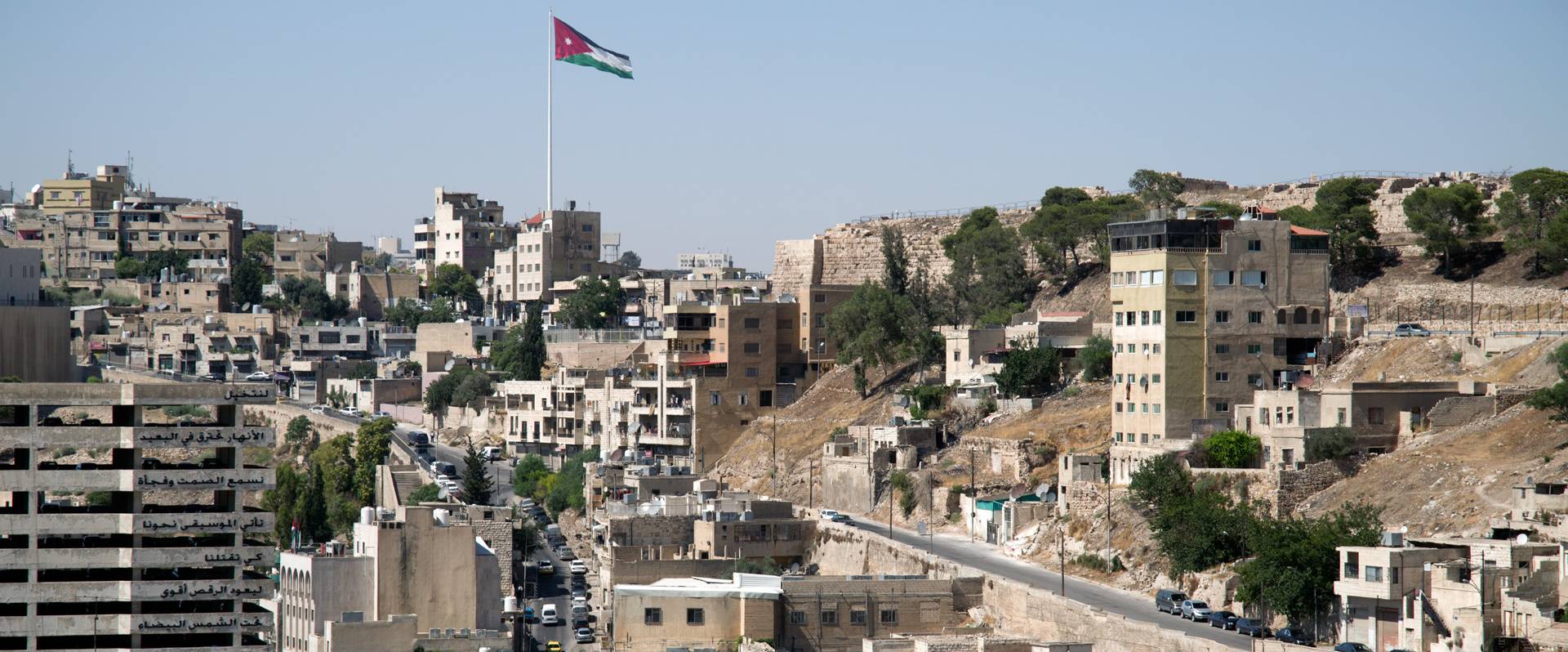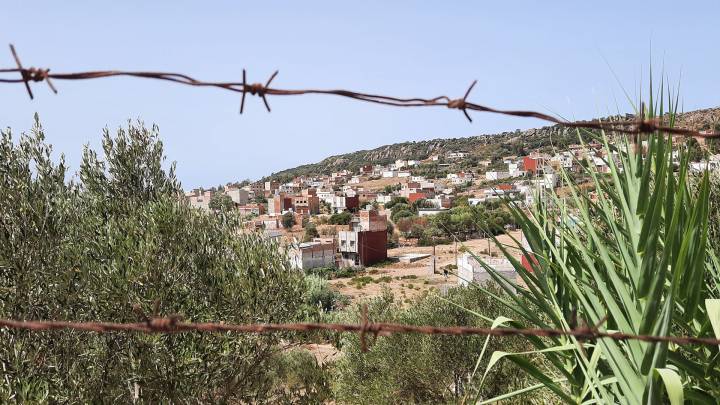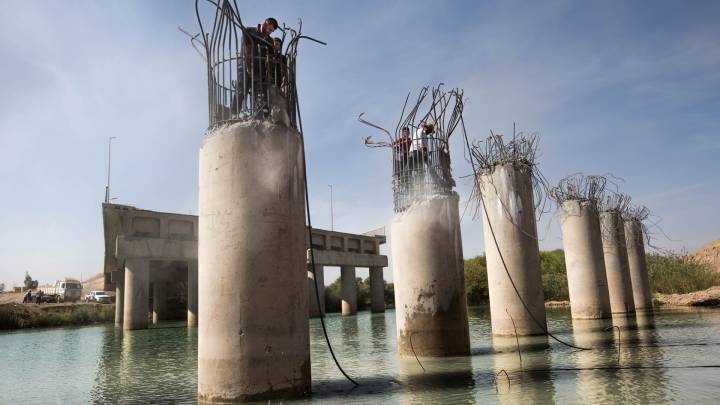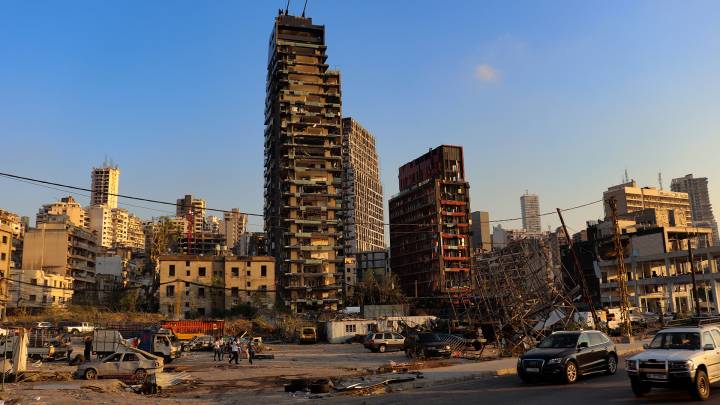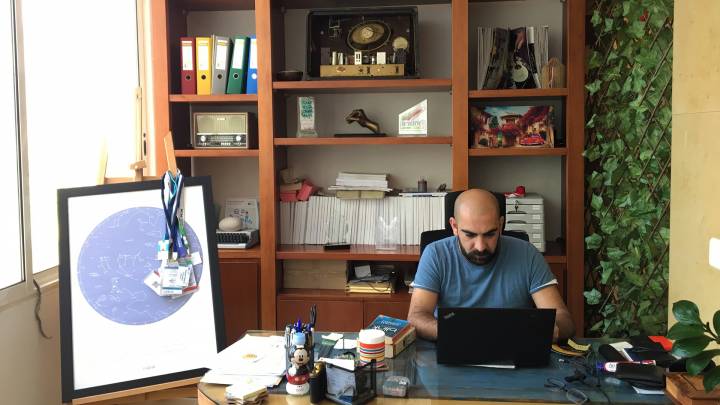Journalist Daoud Kuttab’s team at Radio al Balad worked for half a year uncovering Jordanian connections to illegal offshore dealings in the Panama Papers leak. But making the final decision to publish the sensitive details was difficult, he writes.
The phone rang while I was attending the Amman premiere of an extraordinary 90-minute epic documentary entitled Open Bethlehem. Leila Sansour, a native Bethlehemite, had dedicated her life and years of work and filming to documenting the history of the birthplace of Jesus as it was being surrounded by Israeli walls.
When I left the Rainbow cinema at around 9pm on Sunday, April 3, I got back to the security official who had called. After a few pleasantries, he told me he was having a problem with the work of a particular journalist working for us. He used the name of a reporter who had already left us, but he also used the English term ‘offshore’. Of course, I knew that he was asking about the investigative report we had been working on for some six months.
Our investigative unit at Radio al Balad has been working with Arab Reporters for Investigative Journalism (ARIJ) for some time, and has won a number of local and regional awards. So when the International Consortium of Investigative Journalists was handed the treasure trove of the Panama Papers, our unit was recommended for Jordan by Rana Sabagh, executive director of ARIJ. I am also a co-founder of ARIJ and was its chairman for nearly 10 years, but I had stepped down the previous December to give new board members a chance. Our lead investigator, Musab Shawbkeh, created a strong support team and began working on the documents and names we were given.
“I have a Ferman [an adopted Turkish term for a decree or an order] from above that you should not publish this report,” the security official told me, without appearing too stressed about it. I told him that I was unable to stop the publication. “The story is out of my hands. It is part of an international consortium of journalists and will be published at the same time throughout the world,” I argued.
The official didn’t care about the international publications; all he cared about was what would be published in Jordan. “You make the ultimate decision,” he replied.
“Yes I do, but you need to understand two things. One is that the main focus of our investigation is a person who has already been imprisoned for corruption; and two, any stoppage of publication in Jordan will have much worse results for Jordan than publishing it."
I have a [decree] from above that you should not publish this report.
I gathered all my courage: “I am sorry, but we plan to publish.” The security official was courteous. “I will pass on this information to my superiors,” he said, and we hung up.
I raced with my Volkswagen Golf from Rainbow Street to the AmmanNet/Radio al Balad offices in Wadi Saqra, where I knew Musab would be working late, as he had every night for six months. We huddled together to decide our strategy. As I arrived, he informed me that a number of worldwide partners had already published their pieces. Panama Papers was the common hashtag, and already the BBC was reporting on it. Russian President Vladimir Putin and his team were attacking the press for what they were saying about Putin.
Quite a number of Jordanian citizens had opened offshore companies in tax havens with the help of the Panamanian Mossack Fonseca company. After we were confirmed as partners of ICIJ, we were given the names of some 1,700 Jordanian citizens, including Palestinians living in the occupied territories who were still holding on to Jordanian citizenship, who had set up companies in Jordan, Palestine and offshore in Luxembourg, the British Virgin Islands and Jersey.
Corruption, Jordanian style
Initially we planned to focus on Jordan’s former Prime Minister Ali Abu Ragheb, who had established a number of companies shortly after resigning. But in the end we decided against doing an investigation into the prime minister for two reasons. We had little information about the few companies he had established, and in contrast we had a huge trove of information on disgraced businessman Khaled Shaheen, who basically got away with a slap on the wrist for the many tenders he won in contravention of Jordanian law.
It was clear that with Shaheen we could draw a much more thorough picture of how the offshore companies were helping a criminal with close ties to senior officials to circumvent checks and balances in Jordan. We had discovered that Shaheen owned or partly owned 26 offshore companies, almost all with foreign sounding names, which participated in and won a number of major tenders. Typically, once they had won a tender they sold it to a company to carry out the actual work, and walked away with a huge bounty. At the height of the Arab Spring, Shaheen became the scapegoat and was stopped at the last minute from carrying out a $2 billion tender he had won to expand the exclusive Jordan Refinery company. He was sentenced to three years in prison and made to pay the small amount of 20,000 Jordanian dinar.
“I am sorry,” I said, gathering all my courage, “but we plan to publish.”
With research that included newly discovered documents plus court documents and interviews with key people involved in the case, we were able to create an enticing narrative that showed how this corrupt Jordanian businessman beat the system using his ties with senior officials and his offshore companies.
Musab and his research team painstakingly drew on cardboard all the connections that Shaheen had created in his web of offshore companies. This seemed to be a much more interesting and informative case, showing how offshore companies can play a corrupting role not only when it comes to tax evasion, but in Jordan’s case also when it comes to hiding the identity of Jordanians applying for major tenders using the foreign names of companies they own through these offshore entities.
We turned the cardboard diagram into an interactive connective map and a well-produced infographic. Along with the other documents, timelines and materials, we prepared quite a nice two-part investigation (with English-language translation) that any reader could navigate to understand in simple terms how corrupt businesspeople were in bed with government officials and how the system worked. Some of the information was in the public domain, though not known to the public, but a lot was also new. The connections needed to be made public.
Our research led to two articles. One dealt with the refinery case, which we dubbed musfatgate (refinery-gate), and the second article dealt with all the companies Shaheen had established over the years, and how he had used them to generate huge profits for himself and others.
Legal questions
The call from the security officials was not our only problem. As is the case in such investigations, we needed the approval of a lawyer familiar with freedom of expression cases. Our lawyer, who usually scans and approves the meticulous and well supported work of our award-winning muckraker Musab, had refused to approve the report for publication.
In a three-page legal letter, the lawyer said he couldn’t support the publication of this report. He didn’t base his rejection on any of the information we had received from the Panama Papers, but on an arcane 1971 Jordanian secrecy law that barred publishing any official document, including government decisions and tenders, without specific permission. The strange thing about the unusual rejection letter from the lawyer was that it didn’t offer any remedies, or suggest any ways to change the intended report so that it could be legally approved.
Musab and Taghreed Doghmi, a lawyer who gives legal advice on our radio station, looked up the law and found out that it was a temporary law. In 2011, when Jordan amended the constitution in response to the Arab Spring, one of the changes was that temporary laws were to no longer be valid if not changed through a proper legislative process within three years. Since three years had passed, this secrecy law was no longer valid, argued Musab.
But the lawyer would not accept the argument, insisting that it was still the law of the land. The fact that he made no specific recommendations for change led us to believe he was simply afraid of putting his law firm’s signature on the report. We checked with another lawyer, and he told us he saw no legal problem with the text of our report. Yet another lawyer, one working with the state security court, also stopped by. We asked for her advice, and she also gave the green light.
At exactly midnight, when I saw the report online, I posted it on my various social networks and went to bed. Tired as I was, it was impossible to sleep.
Our intention had been to publish on Monday, April 4 at noon Amman time, but the phone call from the security official sparked a reassessment. Thousands of words of text, video, interactive maps, infographics, documents and audio interviews had been posted on a separate website and were waiting for release. In such cases I usually call the chairman of the board of this non-profit organisation to get him on board, but I knew he would be asleep. However, our chairman Elias Farkouh, a well-known novelist, normally woke up at 3am to do his reading and writing.
What if we publish tonight, I asked Musab? We can give the order to the computer company and I will turn my phone off. He agreed. I made the call to the company that manages our site, which had worked with us for weeks preparing all the documents and maps for publication. To be on the safe side, our webmaster asked that I send him the order by email. I had turned off my phone so as not to get any disturbing calls, but that also meant others couldn’t reach me. The webmaster had been asked to make changes, and agreed to make them in the morning, before the midday launch. The webmaster wanted to know if they should publish without making the changes, but couldn’t reach me by phone. Luckily, I was still online; after conferring with Musab and the webmaster, we decided that the changes were cosmetic in nature and that it was more important to post our page online and worry about the other issues later.
At exactly midnight, when I saw the report online, I posted it on my various social networks and went to bed. Tired as I was, it was impossible to sleep. My wife, who can usually detect when I am under pressure, had no idea about what had happened that night. I had decided not only to keep my chairman of the board in the dark, but also my wife.
The next morning I turned my phone back on. By the time our morning show came on, the story was everywhere. Mohammad Fraij, our morning show presenter, had to quickly read the main points of the investigation, and by 8:30 he was ready to interview Musab on our breaking story. Facebook’s new policy of airing live streams meant that the interview with Musab was not only heard on the radio but also followed by many of our 200,000 social media followers.
No calls came in from the government or the security forces. The international story was all over the globe, and the only mention of Jordan was about a few companies that the former prime minister had established offshore shortly after resigning. The Jordanian Prime Minister Abdullah Ensour seemed to be referring to our report the following day, when he said that there had not been any major corruption in the previous five years.
Jordanian media did little to follow up our investigation. Most of the coverage dealt with international reactions to the Panama Papers. The former prime minister of Jordan, who had refused to talk to us or to a German newspaper, broke his silence and spoke out to justify the company he had established, describing it as inheritance protection for some of his foreign properties. A parliamentary committee said that it wanted to close loopholes for offshore companies competing in Jordanian tenders, but this was just talk. No law was tabled in parliament.
We knew that it would take time for everyone to absorb what we had done, and we knew that by this time it was impossible to stop it. The following day, our fears had subsided and I called the chairman of our board to tell him the whole story. He was very happy, and he understood why I hadn’t called him.
Daoud Kuttab, an award-winning journalist, is the former Ferris Professor of Journalism at Princeton University. He is the general manager of Radio al Balad and the Ammannet news website in Jordan. Follow him on Twitter @daoudkuttab
